Have you noticed clumps of hair in the drain when you shower?
Is your hair dry, brittle, or breaking?
Or have you noticed a thinning of your eyebrows?
All of these symptoms can be caused by thyroid dysfunction. And they aren’t uncommon either with around 40% of patients experiencing them.
And if that’s your issue, you’re in the right place because thyroid-related hair loss is a solvable problem.
Here’s my 7-step process for fixing it:
Step #1. Check Thyroid Function
This is, by far, the most overlooked cause of hair loss for thyroid patients.
The reason?
Because thyroid dysfunction, both high and low, results in a type of hair loss known as telogen effluvium (1).
This is a diffuse type of hair loss that occurs across the entire head and it’s related to the impact thyroid hormone has on the hair follicle.
When thyroid hormone is too high or too low it will disrupt the hair follicle by delaying the growth phase and prolonging the shedding phase.
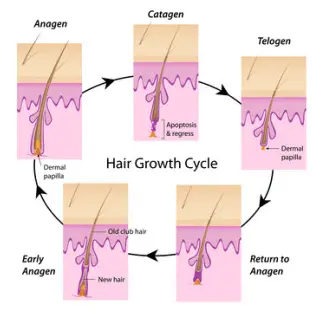
In other words, your hair grows more slowly while also shedding at a faster rate.
Over time this leads to thinning of the hair and a lot of distress.
To be clear, this isn’t the only cause of hair loss related to your thyroid, but it is the most common which is why it’s #1 here.
Fortunately, it has an easy solution:
Fix your thyroid!
It sounds so simple and yet it’s something that is overlooked by most doctors and most patients.
But if you can normalize thyroid function, you will solve this problem.
How do you do that?
The fastest way is through the use of thyroid medication and thyroid lab tests.
But standard medications and standard lab tests are usually not enough.
Instead, you will want to do the following:
First, get a comprehensive set of thyroid lab tests that includes TSH, free T3, and free T4, and make sure that these values are optimal, not just normal.
Second, use a combination of thyroid medications, including T4, T3, and T2.
Taking just levothyroxine by itself and looking only at the TSH isn’t going to cut it. And if I had to bet money, that’s probably the strategy that most of you are using right now which is why you’re still experiencing hair loss.
But when you take this comprehensive approach to thyroid management, you will probably find a significant improvement in hair quality and a reduction in hair loss to boot.
That’s step #1, step #2 is a little more complex:
Step #2. Take a Close Look At Your Thyroid Medication
This is where things might get a little confusing, but stick with me.
Here’s the reality of the situation for thyroid patients:
All thyroid medications have the potential to cause hair loss.
That doesn’t mean that they always will, but it does mean that they can.
This is for two reasons:
The first is that you may just be taking the wrong dose.
If your dose of thyroid medication isn’t high enough then you will remain hypothyroid and your medication will have no impact on your hair loss because it just isn’t working.
And conversely, if you take too much thyroid medication then you may push yourself into a hyperthyroid state which also can cause hair loss.
The bottom line is that if your thyroid medication is not in that Goldilocks zone, you may experience hair loss.
The second reason has more to do with the side effect profile of thyroid medications regardless of the dose being used.
Hair loss is a known side effect of all thyroid medications, including levothyroxine, in a similar way that you might experience nausea when taking metformin.
But let me be clear:
Not everyone who takes thyroid medication will experience this side effect.
But for those who do, it definitely throws a wrench in the whole figuring out why you have hair loss equation.
The good news here is that this problem can easily be solved by just switching to another type of thyroid medication.
If you are having issues with levothyroxine then try Synthroid or Tirosint.
If you are having issues with Cytomel then try liothyronine or SR T3.
If you are having issues with Armour Thyroid then try Adthyza or NP Thyroid.
There’s always another option and always another thyroid medication. The hard part is just getting your doctor to prescribe it.
To summarize:
Make sure your thyroid medication dose is in the Goldilocks optimal range and, if you are still experiencing hair loss, try another type of thyroid medication.
Step #3. Check Your Iron & Ferritin Status
By far, the most common nutrient deficiency behind hair loss in thyroid patients is iron.
What gets confusing is that the best way to test for this deficiency is by assessing a lab test known as ferritin, not iron.
Ferritin is a protein that stores iron and is used as a way to assess iron storage in the body.
This matters because it’s both possible and common for thyroid patients to have completely normal iron levels while also having low ferritin.
And it’s this decline in ferritin that impacts your hair.
In fact, when we look at the research, we see that a ferritin level of 70 ng/mL is necessary for optimal hair health (2).
But here’s the problem:

If you look at the reference range for ferritin, it ranges from 30 to 300 ng/mL.
This means you could have a low normal ferritin level of 45 ng/mL which is high enough to be “normal” but not high enough to support hair growth.
And I can’t tell you how many thyroid patients I’ve seen in this low normal range.
To make matters worse, doctors typically don’t check your ferritin unless you already have signs of anemia.
So you could be walking around with low ferritin without even realizing it.
And because of the impact that thyroid hormone has on iron absorption, up to 30% of hypothyroid patients don’t have enough.
It’s for these reasons that every thyroid patient should have both their ferritin and iron levels assessed (3), especially if they are having problems with hair loss.
If you find that your ferritin is less than 30 ng/mL, take iron supplements to get it up to at least 70 ng/mL.
Doing this will not only improve your hair health but also thyroid function and it’s a simple step to solving hair loss.
By the way, this ferritin issue is also why many women believe that prenatal multis help with hair growth.
There’s nothing magical about the prenatal vitamin except that it contains iron and iron is usually excluded from multis because you never want to take more than you need.
Step #4. Check For Hormone Imbalances
On top of thyroid hormone-related hair loss, you also need to worry about other hormone-related hair loss as well.
The one that stands out is androgenetic alopecia.
This type of hair loss is more common in men but an astounding 30 million women in the United States experience it as well (4).
And for someone with a thyroid problem, you are at higher risk for developing it.
In women, this type of hair loss presents as a thinning of the hair on the crown of the head and on the front of the scalp.
And it should be differentiated from the other types of hair loss we’ve discussed so far because the treatment is different.
This type of hair loss stems from the impact that certain androgens have on the hair follicle.
It’s thought that in thyroid patients, a lack of thyroid hormone weakens the hair follicle which makes it more susceptible to androgen influence.
The result is that hair follicles that are more sensitive to androgens will shrink over time.
And the follicles that are more sensitive tend to congregate in certain places like the crown and the hairline.
The good news is there are lots of different treatments that can help your body better breakdown and eliminate these androgens.
These range from natural options like zinc and saw palmetto to medications like spironolactone and minoxidil.
By the way, low estrogen and low progesterone, the female sex hormones, can also contribute to hair loss as well.
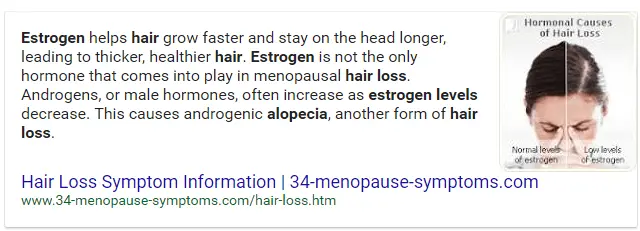
And these hormones also tend to be imbalanced as a result of thyroid dysfunction.
The good news is that by optimizing your thyroid as we talked about in step #1, you may not need to do any additional treatments.
So be aware of these other hormones, but focus on your thyroid first.
Step #5. Check For Immune Dysfunction
In addition to dealing with telogen effluvium and androgenetic alopecia, as a thyroid patient, you will also be more susceptible to another type of hair loss known as alopecia areata.
Unlike the other two, this one stems from immune dysfunction and is classified as an autoimmune disease.
Because the most common type of thyroid disease is an autoimmune disease; Hashimoto’s thyroiditis.
And because if you have one autoimmune disease you are much more likely to develop another, all thyroid patients should be aware of it.
Fortunately, this type of hair loss is easy to spot and not as common as the other two.
You’ll know if you have it because you’ll find areas of patchy hair loss, usually in circular arrangements on the scalp but it can also impact eyebrows and eyelashes as well.
The bad news is that alopecia areata is more difficult to treat.
The good news is that only about 10-20% of thyroid patients will experience it (5).
And the other good news is that the same treatments that help balance the immune system when treating Hashimoto’s will also help with this type of hair loss.
If all else fails, look to your immune system.
Step #6. Consider Other Therapies
Going the all-natural route can definitely help you regrow your hair, but, let’s face it, they take time.
And sometimes time is a luxury, especially when you are losing clumps of your hair.
For that reason, there may be a time and a place to step up your treatments and get more aggressive.
These treatments won’t manage the root cause of your hair loss, but they can work quickly to halt hair loss and help you regain your confidence while you wait for the natural options to kick in.
Here are a few that work:
- Red light therapy – Red light with a wavelength of 600 to 650 nm has been shown to improve scalp blood flow, and cellular health, and prevent shrinkage of hair follicles (6). The only downside is the cost, but if you can afford it, it’s definitely worth it. And you can combine it with the other treatments we are about to mention for even better results.
- Minoxidil – This over-the-counter medication is great for all types of thyroid-related hair loss (7). Its biggest downside is that it only works while you are using it and any benefit you experience with its use will go away once you stop. But there’s a place for its use if you are desperate for some immediate hair growth.
- Microneedling – Who knew that rapidly poking thousands of little holes in your skin could help with hair loss? Well, it does, by stimulating collagen production, blood flow, and recruiting growth factors to hair follicles. Its effects are even amplified when combined with topical minoxidil or platelet-rich plasma (8).
- Spironolactone – This prescription medication, originally designed for blood pressure, blocks androgens and is an effective tool for female pattern baldness (9). It can be taken by itself or used in combination with other treatments.
- Silicon – One of my go-to supplements for thyroid hair loss is silicon as monomethylsilanetriol. It works quickly (10) and helps about 70-80% of the time. This is the silicon supplement that I recommend for thyroid patients.
- Collagen – Collagen is another go-to beauty supplement for thyroid patients. Not only will it help improve your hair (11), it also has beneficial effects on your skin, bones, and joints. The key to understanding here is that it won’t necessarily cure hair loss, but it will improve the quality of the hair that remains making it thicker, shinier, and healthier. In other words, it can help mask the unappealing aesthetic appearance of hair loss. This is the collagen that I recommend for thyroid patients.
Here’s the bottom line:
Thyroid-related hair loss is a solvable problem, but getting there takes the right approach.
If you’ve noticed your thyroid impacting your hair then chances are high that it’s degrading your collagen.
Check out this article next to learn more about the signs of low collagen caused by your thyroid.
Frequently Asked Questions
Yes, one of the side effects of Synthroid is hair loss.
This may be due to the medication itself (including inactive fillers and dyes) or due to your dose itself.
Both high and low dosages of levothyroxine can contribute to hair loss.
If your hair loss is due to hypothyroidism then taking Levothyroxine will improve your hair.
Many times the state of hypothyroidism results in a cascade of hormone imbalances and nutrient deficiencies that all lead to hair loss.
This means that you must address all of these problems for the best results.
Yes, Cytomel and Liothyronine can both cause temporary hair loss that is usually self-limiting within 2-4 months.
In most cases, the hair loss side effect of taking Cytomel will simply fade with time.
Yes, NDT including Armour Thyroid, Nature-throid, and WP Thyroid can all cause hair loss.
Yes, too much thyroid hormone in your body can also contribute to hair loss.
This can come from taking too much thyroid hormone as well.
Yes, one of the main symptoms of hypothyroidism is hair loss in the lateral 1/3 of the eyebrow area.
Taking thyroid hormone (in high enough dosages) should cause this hair to regrow relatively quickly.
Yes, but most patients do better while taking some form of T3 thyroid hormone.
Some patients will experience hair growth on Levothyroxine, but many patients continue to have hair loss while taking this medication.
Growing your hair back takes time, on the order of 4-6 months.
While making changes it’s often better to assess how much hair loss you have, instead of how fast your hair is growing back.
You will notice less hair loss while making changes long before you notice your hair growing back.
So while evaluating changes you make, focus on how much hair you are losing instead of if it is growing back.
Scientific References
#1. https://pmc.ncbi.nlm.nih.gov/articles/PMC10766245/
#2. https://pmc.ncbi.nlm.nih.gov/articles/PMC7394174/
#3. https://pmc.ncbi.nlm.nih.gov/articles/PMC7394174/
#4. https://pmc.ncbi.nlm.nih.gov/articles/PMC6322157/
#5. https://pubmed.ncbi.nlm.nih.gov/34455910/
#6. https://pmc.ncbi.nlm.nih.gov/articles/PMC8577899/
#7. https://pmc.ncbi.nlm.nih.gov/articles/PMC6691938/
#8. https://pmc.ncbi.nlm.nih.gov/articles/PMC8776974/
#9. https://pmc.ncbi.nlm.nih.gov/articles/PMC10502763/
#10. https://pmc.ncbi.nlm.nih.gov/articles/PMC4938278/
#11. https://pmc.ncbi.nlm.nih.gov/articles/PMC9569759/
#12. https://www.ncbi.nlm.nih.gov/pmc/articles/PMC4828511/
#13. https://www.ncbi.nlm.nih.gov/pubmed/8435917
#14. https://www.ncbi.nlm.nih.gov/pmc/articles/PMC4828511/
#15. https://www.ncbi.nlm.nih.gov/pubmed/8834378
#16. https://www.ncbi.nlm.nih.gov/pubmed/24371385
#17. https://www.ncbi.nlm.nih.gov/pubmed/18615851
#18. https://www.ncbi.nlm.nih.gov/pubmed/18615851
#19. https://www.ncbi.nlm.nih.gov/pmc/articles/PMC3356957/
#20. https://www.ncbi.nlm.nih.gov/pubmed/26010505
#21. https://www.ncbi.nlm.nih.gov/pubmed/26010505
#22. https://www.ncbi.nlm.nih.gov/pmc/articles/PMC3769411/
#23. https://www.ncbi.nlm.nih.gov/pmc/articles/PMC4828511/
#24. https://www.ncbi.nlm.nih.gov/pubmed/27538002
#25. https://www.ncbi.nlm.nih.gov/pubmed/11972140
#26. https://www.ncbi.nlm.nih.gov/pmc/articles/PMC3520819/
#27. https://www.ncbi.nlm.nih.gov/pmc/articles/PMC4543599/
#28. https://www.ncbi.nlm.nih.gov/pubmed/14996087
#29. https://www.ncbi.nlm.nih.gov/pubmed/15034503
#30. https://www.ncbi.nlm.nih.gov/pmc/articles/PMC3746235/
#31. https://www.ncbi.nlm.nih.gov/pubmed/26278532
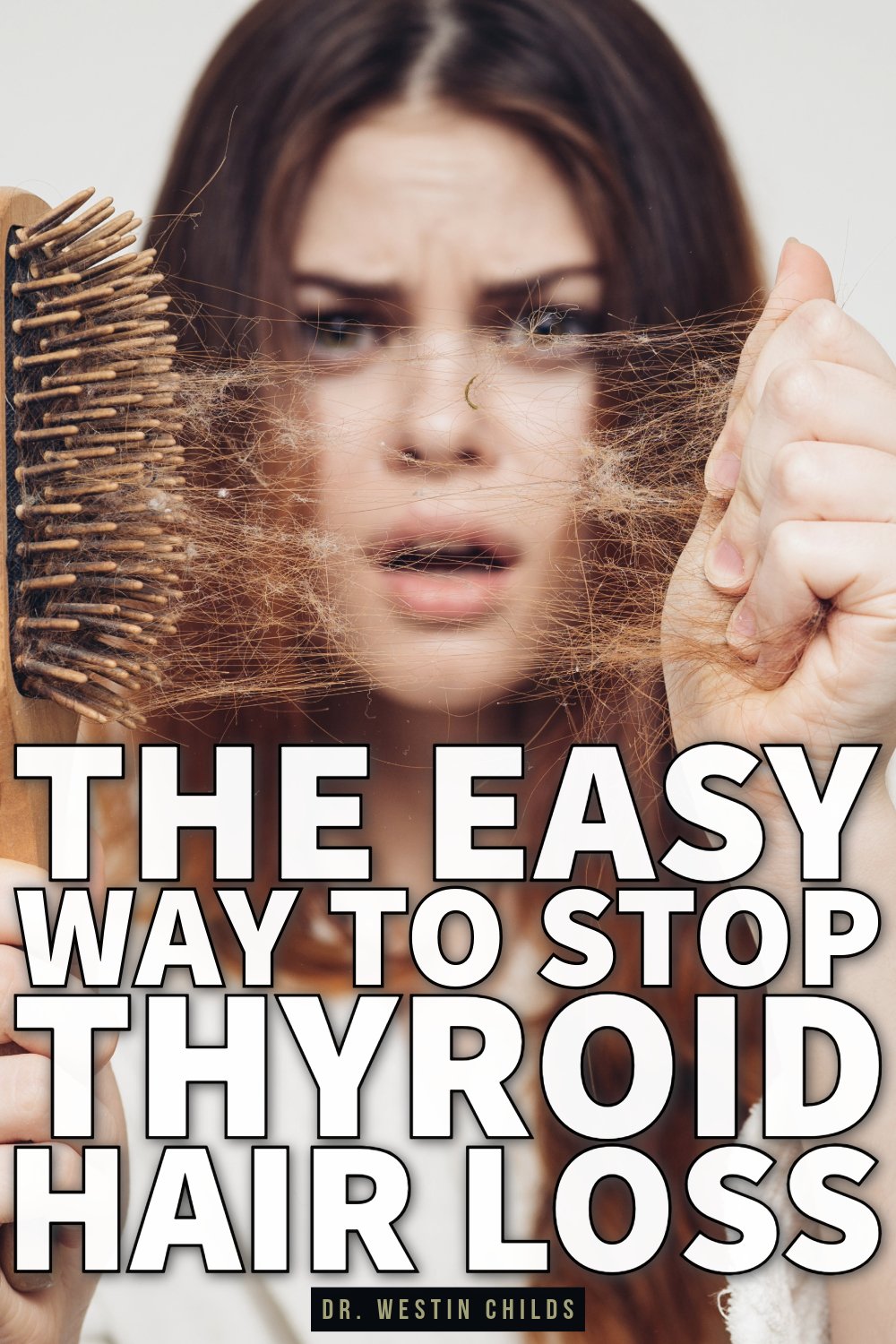
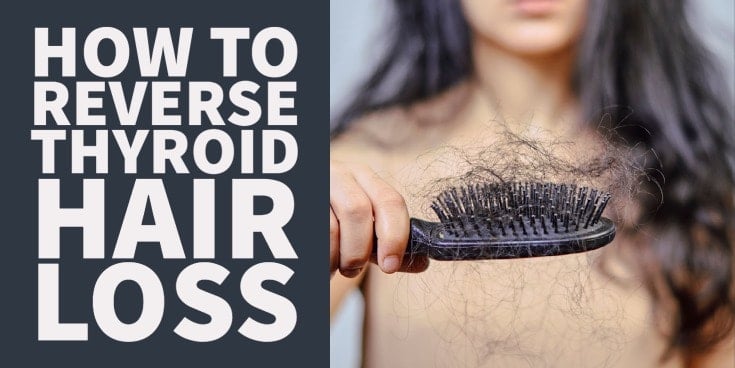
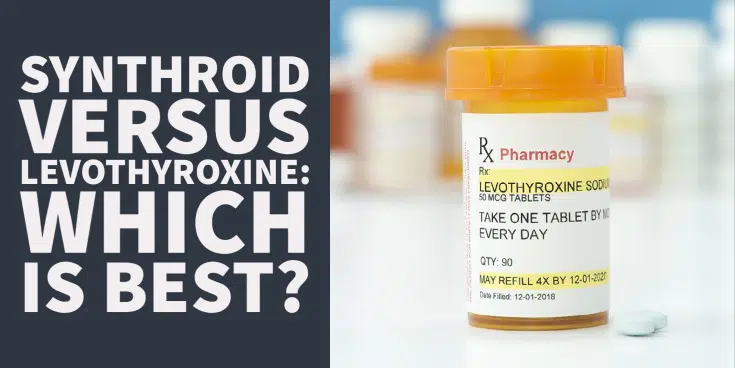
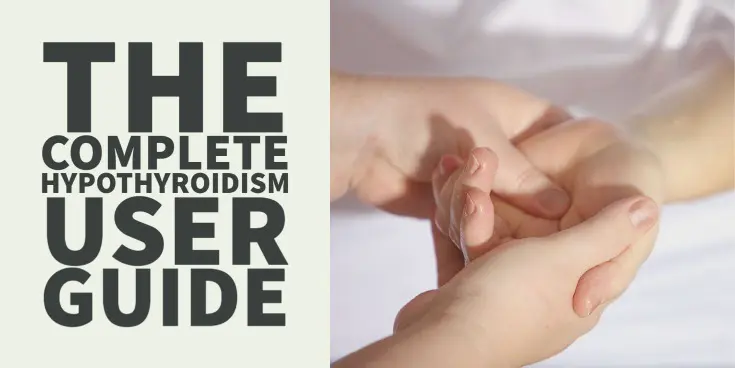
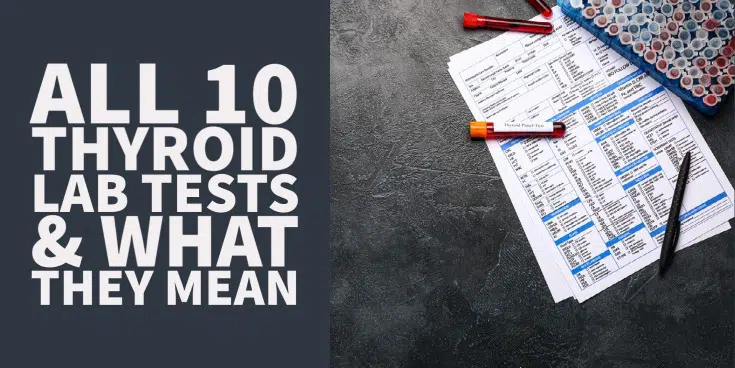
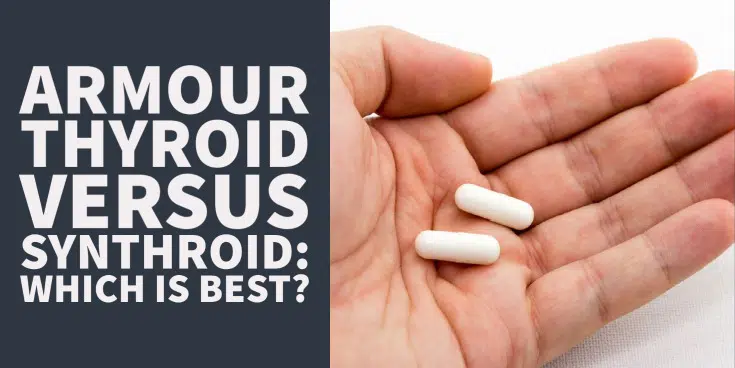
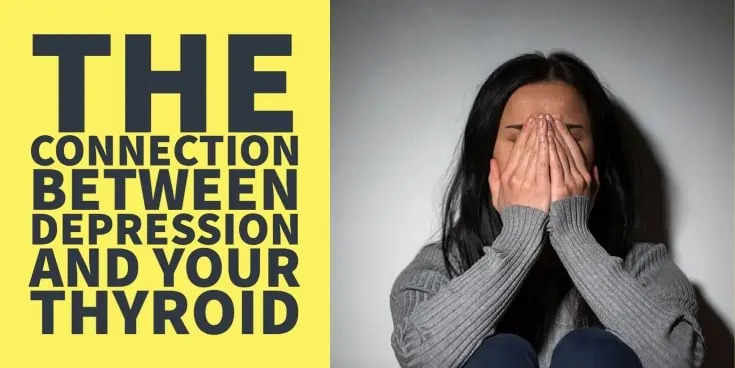
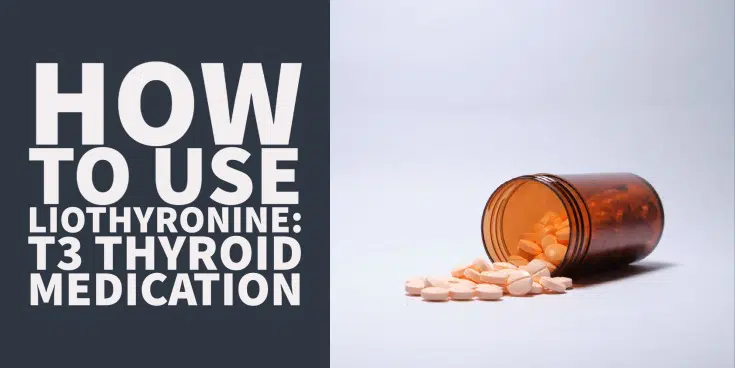

About Iron. Recently my understanding has changed to include the idea that iron overload is actually more common than anemia and that iron preparations would make the mineral dysregulation worse. What say you?
Hey Mindy,
In my patient population iron deficiency is much more common than iron overload, but it doesn’t matter because both are relatively easy to diagnosis with the right tests.
Thank you. I just got this response more than a year later!
What can be done for a low iron problem but a ferritin level of 200? Thanks
Hey Jj,
Your ferritin at that level may be a sign of underlying inflammation, you will need to seek out the cause and treat that to lower it.
Hi, I really profit a lot from your posts and other smart people who share their knowledge, however it is sometimes difficult. I was taking high doses of zinc (30-60mg alternating) for some time and then had my labs done. There was a very level of copper, did not know that zinc and copper are antagonists. Do not know what to do now. Should I stop supplementing zinc or go on lower doses. Should I supplement copper, I heard this could be dangerous?
Hey Joanna,
You would probably benefit from some guidance from a practitioner or a health coach, doing this on your own can be difficult.
Hi Dr. Childs,
What are your thoughts on using DIM for weight loss and hormone balance while on cytomel for hypothyroid/hoshimotos? Also, thoughts on iodine supplementation with hoshimotos?
Hey Leigh,
Using DIM is fine if you have estrogen/progesterone issues.
Iodine, if used correctly, is also generally well tolerated in patients with Hashimoto’s.
Hi Dr. Childs,
What brand of iodine do you recommend and how much should I take, I have Hashimotos.
Thank you,
Sue
Hey Sue,
You can find more in this post: https://www.restartmed.com/iodine-supplements/
Hi Dr. Childs,
I’m hypotyroid i also have insuline and leptine resistance, i almost never ate fruits and vegetables in my life, so i guess i have vitamines and minerals deficiency, my doctor told me to eat fruits to reduce inflamation. But i saw in your post on how to reverse leptine resistance that we should remove fruit otherwise we can’t loose weight.So what’s your thoughts about it ? should do i keto diet ?
Hey Rodrigo,
On this blog I can’t really give specifics but as you can imagine each case is highly individualized and requires guidance from someone who understands how to balance these factors. In some cases you may need to temporarily increase certain foods, then remove them for a period of time, etc. All of this depends on your blood tests, inflammatory markers, hormones, etc.
I read the ingredient list for Biosil, the supplement you linked to, and it did not include biotin. Should biotin be taken additionally? And at what dose?
Thanks.
Hey Jess,
Up to 10,000mcg of biotin per day, here is the recommended product.
Hello doctor , im hypothyroid patient.and i m suffering from lots of hair fall so my hair become very thin .bt now i m pregnant and my hair fall is control bt my hairs are very thin right now pls suggest me some multivitamins for thicker which is available in india also.i wanna reverse my hair back .pls help me.and my thyroid level is 1.54 right now bt i want regrow my hair as soon as poosible
I would start with the recommendations and supplements in this guide.
Sir pls prescribe me good supplement for regrowth of my hair bcoz now my hair loss is completely stop due to pregnancy .so after pregnancy i don’t want to lose furter hair .pls sir suggest me good supplement for regrowth that i should start after pregnancy.and which is available in india also
This is my recommended supplement: https://www.restartmed.com/product/thyroid-hair-regrowth-complex/
Hi Dr. Childs. I am currently taking 60 grains of Armour (my doctor say take it twice a day, but the instructions from the pharmacy say take it all at once?). I started taking my temperature daily for about 10 days. It ranged from 95.1 to 97.6. My doctor added 25mcg of Levothyroxine to my dosage, but I don’t like the side effects. Is it possible to increase my Armour dosage instead? My free T4 was 1.12, my TSH was 0.036 and my free T3 was 4.6. Your thoughts?
Hey Ellen,
You will have to talk to the doctor who prescribed the medication if you have conflicting information regarding your dose.
Been on Desiccated 30mg for 9 months. Was on Synthroid 30mg for three months. On 25 mg of Premarin for four moths. Lost much hair . Hair is very fine and thin. Not as coarse anymore. Saw dermatologist. Said hair growth should start in six months to a year. Been on Desiccated for 9 months now.
Hi Mags,
You might find this article helpful if you’re interested in growing your hair back: https://www.restartmed.com/thyroid-hair-loss/
Sir pls prescribe me good supplement for regrowth of my hair bcoz now my hair loss is completely stop due to pregnancy .so after pregnancy i don’t want to lose furter hair .pls sir suggest me good supplement for regrowth that i should start after pregnancy.and which is available in india also
I have a Great Dr here in Maryland. Ran all the tests you like…. He says I need the Nature Thyroid, I am scared of the potential for hair loss. TOOOO much already can not afford more loss. He wants to start me on 1/2 a grain, should I ask if I can do a quarter and beef up the ferritin (19) and the B12. I can ask for the full iron panel.
I think I heard you say do them all together, not troubleshoot the deficiencies with supplementation, and then try the NT right? My main concern is my head! He referred to me as sub clinical Hypo, he has me reading Stop the Thyroid Madness book.
THANKS Nice site
Hi Diane,
Most people tolerate thyroid hormone very well and in many cases the reason for poor hair growth is insufficient thyroid hormone.
Greeting from Atlanta! Was diagnosed with Hashimotos 9 months ago and hair loss/shedding was my first and still worst symptom. Taking 1 gram nature thyroid and Thyroid levels are improving, antibodies still high. Have been working w/ a intergrative dr to find my root cause, and learned today I have Candida albicansb in my gut and possible SIBO through Genova GI Effects stool test. Also low DHEA and high cortisol levels in salivia found. Have been focusing on leaky gut since being diagnosed with VSL#3, ortho digestzyme, plant enzymes, strick AIP Diet, and lots of other supplenents. Had Genova nutraeval done and had magnesium difficincy which has been corrected. Taking Viviscal hair vitiman, omega 3 fatty acids drink grass fed organic bone broth daily, and hair is still coming out 10-15 strands with one swipe of my hand or brush. It’s so saddening and debilitating. Would greatly appreciate your thoughts on what I could do that I’m not currently, and, if you would consider consulting with me over the phone at an agreed rate to help put the right plan together to stop my hair loss. I’m 40 years old, was in the best of health prior to Hashimotos, and simply want my life back. If this is something you will consider, I would be most appreciative and really want to solve this puzzle and know it can be done with the right guide. Hope to hear from you. Warm Regards. My email is Email us: Click to view address
You, as does every other site, mentions hair loss and hyperthyroidism but tends to focus mainly on hyopthyroidism or only if you are being over medicated. I am hyper and have been for months now. I take 10 mg (5 mg morning & eve) of Methylmazole every day. My hair sheds like crazy and never slows down. Do all of these apply to that as well or is it different if you are hyper and not hypo.
Hi Jodi,
You are losing hair because the medication is making you hypothyroid because this is how we treat patients with hyperthyroidism. We turn down their thyroid function with medication and make them hypothyroid, as a result they usually have all hypothyroid symptoms. You can read more about that process here: https://www.restartmed.com/hyperthyroidism-weight-gain/
Some of these recommendations will work for you, but others will not.
HI Dr. Childs, I lost alot of hair last hair before being diagnosed with hypothyroidism. I was placed on Synthyroid (brand) of 50 mcg in Jan 2017, the loss started to slow down in April 2017 but has picked up again in the last month. My ponytail is super thin and I’ve told my doctor who says I should see a dermatologist because its not related to my TSH or HRT as I also have POI. My TSH is at 1.7 and my estrogen and progesterone levels have been stable. I am trying to find a doctor who can help me, I don’t feel like I have much hair to lose. Can you please recommend someone in the DC metro region that understands this issue and options that you’ve laid out in your blog? Thanks
Hi Katherine,
Unfortunately I don’t know anyone in that area to recommend.
Hi Dr. Childs, I found a functional med doc but here is another question as it relates to hypo hair loss, I switched to naturethroid 1 grain from synthyroid 50 mcg after 9 months of terrible hair loss. My TSH was 1.4 and T3 was 2.6 while on Synthyroid (avg) and after 2.5 weeks of Naturethroid it is now TSH of .86 and T3 3.3. I don’t see hair growth and the doc doesn’t know how to up the T3 without upping dosage because that will lower the TSH pushing me into the hyper category. Is there another option to push my T3 into the upper quartile without lowering the TSH? I look forward to your opinion.
Hi Katherine,
You can try this approach: https://www.restartmed.com/thyroid-support/
Or read more info here: https://www.restartmed.com/increase-free-t3-naturally/
Hey Dr. Child’s, I’m an African-American an I have hypothyroidism. My hair has fallen out an the texture has change dramatically, it’s hard an have this nappy feel to it. I haven’t permed it in years because it won’t take (straighten it) I’m taken 88 mg of levothyroxine an with each visit the Dr tells me that the thyroid level or blood test came back good. What can I use to help the nappy shedding an regrow my hair. I also was wondering does having thyroids makes the bottom of my feet hurt. I am up an on them for at least 16 hrs a day. Thank you for any advice you can give.
Hi Dr. Childs,i just saw your optimal range levels and now i realised i might have a problem.My last blood tests look like this: THS-0.6766, fT4-0.83 and TPO antibodies-0.32.Im not taking any thyroid medication yet,cause every doctor I’ve seen considered my blood tests as “normal”.I just read tons of your articles and I’d like to ask you if you could take a look over my blood test values and tell me if i have hypothyroidism or Hashimoto’s,cause i am losing tons of hair,and im really depressed about it.Thank you very much
Hi, your article seems very well written and researched. Thank you. Do you do individual consultation?
Hi! I take a compounded T4 + a compounded T3 at 5 am. I eat breakfast at 8 am. I take a second dose of T3 at 12 noon and at 1pm I eat lunch. If I want to take my B vitamins etc. 4 hours away from my Thyroid medicines (am dose and noon dose), the timing doesn’t work. Currently, I just take my B vitamins, etc. on an empty stomach at 8 am before I eat. I don’t know how else to take the B vitamins….what do you suggest? Thank you for all your informative help! Carol Ann
My thyroid has been under good control I believe for 25 years on Armour Thyroid. I have taken antibiotics and prednisone for asthma and bronchitis and am now on advair and albuterol. My hair is falling out like crazy. I Am at a loss as to what can be done to stop it.
Hi Judy,
The first thing you should do is check your iron and basic nutrients followed by hormones such as thyroid and testosterone. That will give you a great starting point.
Hi Dr Childs, I have been suffering from hair loss for the past 10 years. Hair loss is not hereditary in my family so I have been doing quite a bit of research to identify potential reasons / causes. I had a tracheotomy when I was 10 years old, in 1980. Do you think this could have caused hyperthyroidism or a another type of thyroid disfunction that could be causing my hair loss?What type of physician and/or specialist I need to see to get my thyroid tested? Lastly, would you recommend any specific diet or supplements I should take? Thanks so much! Jeff
Hello doctor,I am hypothyroid for many years but diagonsed that only recently and taking medications since last year.I am having severe hair breakage, hair loss and thinning.I am pregnant now and can I take biotin,silica,choline during this time? Doctors advise me not to take biotin as it might interfere or have any side effects.But I understand without biotin and other hair growth minerals , I will be having a hard time to save my current hairs and regrow.Please guide me the right supplements that I can start with.I am taking Slowfe, prenatals,Vitd3.For Vitb12 I have been taking fish weekly thrice.I also found am low in zinc.I will try adding that.
Hi. My daughter has Hashimoto’s and her TSH has been between 2.5-3.0. Her hair hasn’t grown in 3 yrs and breaks. Her Ferritin level is 22. We tried liquid iron but it caused stomach issues and severe constipation. The doctor put her on .5 mg of genetic Cytomel but still not feeling better and hair is still breaking and not growing. Doctors keep saying all her blood tests are normal, her B12 is around 500-600. She tried Armour thyroid and it did not work well for her. I’m really getting frustrated and don’t know how to help her. Please give me some advice. Thanks, Lisa
So if I don’t take a hormone replacement I lose hair, and if I do take it I still lose hair…This is beyond depressing.
Hello Dr child’s,
So I’ve been having hairloss issues for the past year, ever since I started taking thyroid replacement medication for hypothyroid. I’m on a T4*T3 combination, and have been taking iron, biotin, vitamin D supplements ever since. My ferritin level is in the 70-80 range and my vitamin D is now sufficient, but my Hair doesn’t seem to be getting better. It is falling out a lot but also growing new hairs – just not fast enough so my scalp is starting to show through.
What do you recommend i do at this point?
Appreciate your reply!
Hi Dr, I have a question that no one seems able to answer. I have Hashimoto’s and thalassemia, I have been taking NDT for about a month and a half and feel tons better but my hair is falling out a lot. I have had all the blood work and the only thing that shows off is the iron and thalassemia related labs. I cannot get these to improve no matter what I do. My functional Dr thinks the hair loss may be related to this combination but doesn’t really know how to help. So my choices are, stop the NDT and feel horrible again and maybe my hair will come back. Or, keep taking it and hope it stops. Do you have any suggestions that could help with this? Thank you!
I purchased brand name of minoxidil and it states that people with Hypothyroidism should not us it. Your article advises using it. My question is, why do you suggest it? I’d like to give it a try am curious if it will hurt or help the hair loss thank you!
Hi Nina,
I don’t necessarily suggest it, I just mention it as a potential option for hypothyroid patients. In most cases, I would recommend against it.
Is itchy scalp and sometimes burning a symptom of hypothyroid? What are somethings I could do to help combat it? I just started T3 but I’ve had this off and on for a couple years
I was diagnosed with hasimotos 11 years ago, after my first child. Now I have 5. In this past year my weight began to increase despite exercise and a general healthy diet. About 2 months ago, My Endo decided to increase my synthyroid from 75 mcg to 88. (Also take been taking cytomel). Since then I’ve noticed an increase in hair loss to the point I’m getting worried. In addition to these medications, I was put on loloestrin Fe birth control because I began early menopause almost 2 years ago. Many things going on.
My eyebrows are all of a sudden falling out. I noticed a bit of hair shedding from my scalp, but not significant, like my eyebrows. My Doctor checked my thyroid and said it was great. She did however say my ferritin was a 3. Would this cause eyebrows to fall out so suddenly as they are. I had some major scaling going on under my brow. She prescribed Fluocinolone oil for that. The scaling has reduced, however my eyebrows are still falling out. Please advise. I am so worried.
Hi Brianne,
Yes, low ferritin can absolutely contribute to hair loss. You can read more about the connection and how to treat it here: https://www.restartmed.com/low-ferritin/
Email us: Click to view address
If taking t3 caused hairloss will stopping it regrow the loss from taking t3?
Hi Tw,
Unfortunately, that usually does not work.
Email us: Click to view address
So those lost hairs due to taking T3 are gone? I wish these drs didn’t use us as experiments and knew alittle more about what they are prescribing. Too bad you weren’t available to help me figure all this out I’ve read the articles I just can’t seem to apply them to my personal needs
Email us: Click to view address
But stopping it will stop any further T3 loss from the medicines correct? How long should that take?
I have noticed my hair stopped falling out when taking nature throid after I switched from levo. It’s taken time and we seem to keep increasing the dose to based on labs, but I am wondering when I can expect to see re growth? Do I have to be stable for 4-6 months first before seeing any growth, or will I see growth prior to that?
Hello,
Can you explain why B complex and B12 should be taken on an empty stomach? I always thought they should be taken with food.
Also, will changing from Armour to another Natural Thyroid, cause more hair loss, because my body will need to adjust to a different product?
Hi Shari,
B12 supplements can be taken with food or without. And B12 shots don’t really matter if you take them around the same time as you have food.
In terms of switching thyroid medications, that shouldn’t have an impact on your hair fall unless you are being under/over dosed during the switch.
Hi Dr. Westin Childs
I have a few questions:
1) Are there long term side effects from using saw palmetto as it reduces DHT?
2) What is a ‘safe’ daily dosage for Saw Palmetto in your opinion?
3) Would trying T3 be a better idea for hair growth instead of supplementing with Saw Palmetto? I not only have hair thinning but a severely dry scalp.
Hi, Dr. I just started Cytomel. It’s 5mcg to be cut in half. I’m super sensitive to meds. I found half to be a little too much to start so quartered it and that seems to be better. Once I get used to that I may try the half again.. have you ever heard of such sensitivity in ppl with meds that have Hashimotos? I’m also on 25mcg Synthroid.
Hi Christina,
Yep! I see it all the time actually. Probably in around 5-10% of people.
Hi Dr. Westin,
I have been taking NatureThroid for about 6 years with no problem (currently at 1 grain) and a lunchtime dose of Liothyronine for about the last year. The pharmacy switched me to WP Thyroid in Jan 2019 when they were out of Naturethroid and then switched me back when they received it in June 2019. Since June my hair has been shedding significantly and I am very fatigued and have achy joints. Could this be due to a reformulation of NatureThroid? My doctor just tested me and my TSH is .566, my t4 free is 1.00 but by t3 free is 6.0 which is high. She lowered the Naturethroid to 3/4 grain and retest in a month. Any thoughts on what is the culprit?
Dr. Westin, have you heard of Dr. Patel in Cedar Hill Texas. I need desperately to see a Dr. for thyroid condition, and hopefully you know of a Dr. in the Cedar Hill/Mansfield/Midlothian/Waxahachie Texas area, who can help me. I would appreciate any info. you can provide.
Hi Fran,
I have not heard of him/her, unfortunately!
Hi Dr. Childs, I have mild hair loss, but does minoxidil or anything else help dandruff & itching scalp? I have tried every shampoo I can find but nothing stops the constant itching for the last few years. I take 25mcg of Levothyroide.
Hi I’m been diagnosed hypothyroid since I was twelve (now 62) but now my hair has been falling out, dry and brittle all the time . I have very fine thin hair and hoping to regrow it if possible. what can you recommend to help as I am desperate and loosing too fast so I know I will be bald before very much longer. My hair barely covers my scalp now. Thank you
Hello Westin,
How do you fix insulin resistance at the same time as taking thyroid medication?
Thanks,
Amy
I don’t get what the Viviscal study has to do with “combination of Silica + Choline + biotin.” I read the ingredients and only see biotin, not silica or choline. Unless their “marine protein complex AminoMar” contains silica and choline… ?
Thanks, doc!
I had malnutrition as a child therefore I have ALWAYS had majorly thin hair. Around 20 years ago I developed Hypothyroidism and I am currently on medication. It has been an up and down battle for years getting my medication right. I have suffered with weight and extremely thin hair. I am very self conscious of my hair. I can’t go swimming and get my hair wet or ride on the back of my husbands motorcycle with my hair down blowing in the wind. I have short thin hair and the only thing that keeps it in place is HAIR SPRAY! 🙁 I want the hair I had in High school. More then that, my daughter developed a thyroid problem as well and had to have hers removed. She is 28 overweight and has thin hair and I know she is self conscious about it like I am. She has low self esteem and I think that is why she has a tough time meeting a nice guy. 🙁 I just want us to both have the beautiful hair we once had.
I was diagnosed with hypothyroidism over 40 years ago. I started with Armour then Synthroid, and then my Dr said I was cured and no more thyroid meds. I then went to my local health food store where I found over the counter Raw Thyroid which I used successfully for many years, until it was removed from health food stores in WA. after about 10 months without any thyroid meds I became very lethargic and saw a new Dr who knew immediately that I had a thyroid problem.
I requested NDT and choose Erfa Thyroid from Canada, it was great! No hair thinning or loss at all.
The US gov no longer allows this pharmacy to sell to the US so I am back on Armour and my hair has been shedding terribly. 1 year ago I could barely get one hand around my ponytail, now it is approx 1/4 the size.
I’d like to again take 88mg of Levothyroxine and a small dose of Armour for my T3. As I did not like Cytomel.
Is this something you would recommend to one of your patients?
Hi Kirsten,
Not as a first-line therapy, but potentially under the right circumstances, I might.
Thank you.
I do take 5000mcg daily of Biotin.
Amour thyroid is 60mg :
Free T3 is 7.6 ph/mL
Free T4 is 1.0 no/dL
TSH is 0.89 ulU/mL
Any of your products you’d recommend?
Hi Shirley,
You’d want to start with these:
https://www.restartmed.com/product/thyroid-adrenal-reset-complex/
https://www.restartmed.com/product/thyroid-glandular-plus/
Hi Dr. Childs,
I recently have had generalized thinning of my hair quickly within the last 3 months. Originally, I was on 30mg of Armour and was still hypo. Most recently, I was on 45mg of Armour Thyroid and had a lot of Hyperthyroid symptoms. My heart was palpitating all the time, and I believe my hair loss has occurred because of this. My Thyroid labs were: TSH-0.36 T4-0.83 T3-2.5.
My doctor believes I am very T3 sensitive so just put me on 75mcg of Levo instead since I seem to be converting T4 to T3 well. So far my heart has palpated less, so hopefully their will be less hyper symptoms. Do you believe my hair loss was a results of the thyroid medication? Do you believe I should be on T4 only? Also should I consult a dermatologist to pursue hair regrowth treatments such as rogaine? I just want to avoid any further hair loss and I’m so concerned my hair will continue to thin even on Levo.
Hi Hannah,
Unfortunately, it’s too hard to say with the information provided. You don’t really need to see a dermatologist for rogaine as it is available over the counter but you are welcome to do so if you’d like.
Is there a compounding pharmacy that will make a T3/progesterone preparation for female hair loss?
Hi Barbara,
A compounding pharmacy can make any combination of medication as long as you have a prescription for it.
Just wanted to add my experience here. After a period of severe stress (surgery) I started having male pattern hair loss. I started progesterone cream and it stopped the loss and it grew back 90%. The male pattern ‘corners’ by the temples never grew back. Which supplements act on those directly? My zinc level is just below midline and so is iron and ferritin.
This brings me to another question:
I’m still taking progesterone being post menopause now and I’m wondering if it props up my thyroid and I should actually be on thyroid medication instead? Progesterone had ‘normalized’ all my thyroid levels.
My progesterone blood levels are at about 2 when they should be close to zero now. (Menstruating women go up to 200-300). I’m wondering if I Should just stay on progesterone for now? I have no more hair loss.
Also wanted to add that as soon as I try to reduce the progesterone now I immediately gain weight. Knowing that my progesterone’should’ be a bit lower I’m wondering if I should be on thyroid meds instead of progesterone.
When I present this question to my doc she tests the thyroid levels which look great. And she doesn’t see a problem with the progesterone being a little higher. I just feel that the progesterone is not quite right anymore. I actually feel like I’m suppressing the little bit of estrogen I have now. Like I am progesterone dominant now? Maybe just add some estrogen then since I’m post menopause and could use some anyway?
Hi Dr. Childs,
I have been experiencing severe hair loss since I had Covid, late September early October 2021. I experienced a devastating loss of my husband of 47 years April 2021. Grief is overwhelming, the illness was overwhelming as I also had pneumonia and Cytokine Storm.
Since then I had my TSH checked and it is now 0.00006 (a good normal for me is around 1.0)
I have been taking 25mg of zinc daily, vitamin D 8,000 IU (my level was only 45) prior to Covid and since Covid I’ve added (Selenium 200mcg and Biotin 10,000 mcg. The biotin was added after I started losing my hair. I know many people who have lost and are losing their hair following their having had Covid also.
I am devastated by this hair loss. I’m very close to becoming bald.
Thank you for any suggestions you are will to help me with.
Valerie
I
Hi Valerie,
Please see some of the therapies listed in this post: https://www.restartmed.com/treatments-for-thyroid-hair-loss/
An amazing article. Whilst I would love to supplement, you mention us with Hashimoto’s are extremely sensitive to supplements & fragrances & dyes to name a few! My question is why is that? I’ve been searching for this answer for years. Nobody can explain why! Thanks
Hi Ruby,
Those with Hashimoto’s have a more difficult time with detoxing than the average person due to how the thyroid impacts certain pathways. You can read more here: https://www.restartmed.com/thyroid-detox/
Thank you for this article. What would you advise for someone who has extremely low Ferritin, and at the same time has mildly high total/saturated iron??
Hi Dawn,
It would depend on your symptoms and your overall health including thyroid status and gut health. You would also need to see serum iron. Ferritin is just a marker of iron storage but if you are asymptomatic then you may be able to increase it through your diet by eating iron-rich foods.
Hi Dr. Child’s,
Do you know of a good endocrinologist or thyroid doctor in either the Orlando or West Palm Beach area. I was diagnosed with Hashimoto approx 12yrs ago and have been on 88mcg of Levothyroxine this entire time. My endocrinologist says my TSH, Free T4, and Free T3 are all normal but I have gained 30 pounds over the last 8yrs and continue to have significant hair fall. I have been supplementing with Iron, Vit D, Vit B12, Selenium, and Ashwaganda but have not had any benefit. Appreciate your help.
Hi Joy,
I don’t have anyone to recommend but you can use this resource to help you find someone: https://www.restartmed.com/how-to-find-a-doctor-to-treat-your-thyroid/
I would also check out this article which outlines the difference between optimal and normal thyroid ranges: https://www.restartmed.com/normal-thyroid-levels/
Hi Dr. Childs,
After reading all of your incredibly detailed and informative information for the three issues I’ve suffered from since age 49 (I’m now 70) – Hypothyroid, Estrogen Dominance, Insulin Resistance. I will be purchasing a few of your supplements to see if I can slowly stop taking the 40 plus seperate natural sups I’ve been taking, from doing my own research over the last 10 years. It would be a miracle if I could feel normal and balanced again, lose weight, without the $$$$ expense I have now, as well as the time needed just safely ingesting all of them.
The only issue I DON’T suffer from is Hair Loss, I do have eye brow loss on the outside corners of each brow, but not too much.
One Important supplement I take that for me, has kept my head hair loss from happening, and I didn’t find you mention is – MSM.
I started taking it back in my early 50’s for pain recovery from the many sports I have done. As well as helping Fibromyalgia that I suffer from when it’s damp, or raining, due to growing up in Oregon (and why I moved to So Cal in 98).
So one of the positive side effects of MSM has been increased hair growth. I take 1,000 mg – 2,000 mg each morning, or more again in late afternoon, if weather is damp or wet. It helps my ache’s and pains and provides myself and other friends I’ve told about it – abundant thick hair growth on our heads.
I have to take less, or none at all, in the summer due to my hair growth being so thick it makes me too hot. I also have to keep it shorter in summer than I do in the cooler months.
I know you do much more immense research on all supplements than I ever could, so I’d be very interested to know what your thoughts are on this MSM supplement, if you have found any similar findings, or even any negatives for it’s use.
Thanks
Hi C M,
I think MSM is great and I’ve written about it here: https://www.restartmed.com/anti-inflammatory-supplements/
It’s also included in one of my supplements: https://www.restartmed.com/product/functional-fuel-detox/
I can’t say that I’ve seen it effective for hair loss, but it wouldn’t be out of the realm of possibility given how inflammation has the potential to impact the hair follicle.
If I understand correctly, Levothyroxine is NOT the cause of hair loss unless you are not taking the right dose for you, correct? So it’s not an actual side effect of taking this drug but rather incorrect use. This is important to differentiate because I looked up all my results and they are perfectly in range according to the references you provided on this particular topic. I have about 40% hair density loss just at the front and my usual insane thick main on sides/back. I stopped wearing pony tails for a year, taking vitamins/supplements according to my genetic needs and did both saliva, dutch urine and blood hormone testing across the board. I don’t know if low estrogen can cause frontal hair loss but that would be my issue? Normal high progesterone and low testosterone in urine/blood but oddly high testosterone in saliva only. Dutch suggested no DHT issues but when low it’s splitting hairs on actual metabolism. I also have low cortisol production however very high free cortisol (not metabolizing it out well)… all these factors led me to look at thyroid but based on the references, I’m good on paper for full thyroid panel. Could it be Estrogen forms alone that would cause frontal hair thinning (going on 5yrs expressing)? Any idea why one would be low on testosterone everywhere except saliva testing, showing the extreme opposite of high?
Hi Nico,
That is not quite correct. All thyroid medications can cause hair loss irrespective of their dose. You can learn more here: https://www.restartmed.com/levothyroxine-and-hair-loss/
Hi, I have been told my thyroid is failing for like 6 years now. My levels are not concerning low per doctor so not on any medication. My hair is falling out and the front thinning terribly. I was put on Spironolactone 50 mg 2 daily to treat but doesn’t seem to help.
Who would you suggest seeing for both thyroid and hair loss. It’s getting worse.
Thank you
Vickie
Hi Vickie,
I would recommend checking out this resource for more help in finding a doctor to help with your thyroid: https://www.restartmed.com/how-to-find-a-doctor-to-treat-your-thyroid/
The moment I started taking Cytomel as my only thyroid hormone I started shedding and it hasn’t stopped for 8 years. I’m afraid I’m going to go bald. My hair was fine when I was on NDT but I was not converting well so I was put on T3 alone and that’s when the shedding began. I’m convinced it’s the medication itself that’s doing this.
Hi Nathalie,
Cytomel is associated with hair loss from three different mechanisms. You can learn more about each here: https://www.restartmed.com/cytomel-related-hair-loss/